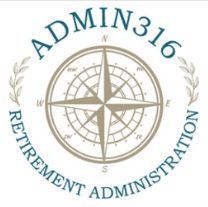Ensuring that a retirement plan is compliant with regulations is crucial for protecting both employers and employees. Non-compliance can lead to significant financial penalties and legal challenges. 316 Fiduciary services offer a solution, providing expert oversight to ensure that retirement plans meet legal and regulatory standards. In this article, we’ll explore when to consider bringing in 316 Fiduciary services and how they can support retirement plan compliance.
Understanding the Right Timing for 316 Fiduciary Services
When Is the Right Time for a Business to Consider 316 Fiduciary Services?
- Starting a New Plan
When establishing a new retirement plan, incorporating 316 Fiduciary services from the outset can set a solid foundation. Starting with a 316 Fiduciary ensures that the plan structure, documentation, and processes are all compliant from day one, minimizing the risk of errors and costly adjustments later on. - Growing Business Needs
As companies expand, so does the complexity of their retirement plans. A growing workforce often requires adjustments to contribution levels, administrative responsibilities, and compliance practices. Adding a 316 Fiduciary as your company grows can help keep pace with these changes, ensuring that new challenges don’t compromise compliance. - Reducing Administrative Burden
Compliance and administration tasks for a retirement plan can become overwhelming, especially for small to mid-sized businesses with limited resources. If the demands of plan management are taking away from other essential business functions, a 316 Fiduciary can alleviate this burden by taking on the responsibility for compliance oversight and administration.
Identifying Key Signs That Indicate a Need for Fiduciary Oversight
What Signs Indicate a Need for Fiduciary Oversight in Retirement Plans?
- Frequent Compliance Concerns
If your business is consistently facing compliance challenges, such as missed deadlines, incorrect filings, or other errors, it may be time to bring in a 316 Fiduciary. These experts help ensure that all aspects of plan administration meet legal requirements, reducing the risk of costly penalties. - Limited Internal Expertise
Compliance with ERISA and other regulatory standards requires specific knowledge and experience. If your team lacks this expertise, or if compliance tasks are delegated to staff with other primary responsibilities, a 316 Fiduciary can provide the specialized focus needed to manage the plan effectively and compliantly. - High Employee Turnover in Plan Management Roles
Changes in staff overseeing retirement plan management can lead to compliance gaps. A 316 Fiduciary offers continuity, maintaining consistent oversight and knowledge of plan requirements, even as internal team members come and go. This stability helps protect your plan from lapses in compliance due to staffing changes.
Specific Compliance Issues Addressed by 316 Fiduciary Services
Are There Specific Plan Compliance Issues Addressed by 316 Fiduciary Services?
- ERISA and Regulatory Adherence
One of the primary responsibilities of a 316 Fiduciary is ensuring adherence to ERISA (Employee Retirement Income Security Act) standards. A 316 Fiduciary provides the expertise needed to manage regulatory requirements, protecting the business and plan participants from non-compliance issues. - Handling Plan Documentation and Recordkeeping
Accurate recordkeeping and documentation are crucial for compliance, especially during audits. A 316 Fiduciary takes charge of maintaining detailed records, ensuring that all documents meet regulatory standards and are readily accessible when needed. - Plan Audits and Participant Notices
From annual plan audits to the distribution of participant notices, a 316 Fiduciary manages all necessary communications to ensure that plan participants are informed of their rights and benefits. By handling these compliance-critical tasks, a 316 Fiduciary protects the business from potential penalties related to inadequate participant communication.
FAQs
When is the right time for a business to consider 316 Fiduciary services?
The right time to consider 316 Fiduciary services is when compliance tasks become too complex to manage in-house, during the establishment of a new plan, or as your business and workforce grow.
What signs indicate a need for fiduciary oversight in retirement plans?
Signs that a business may need fiduciary oversight include frequent compliance issues, a lack of internal expertise, or high employee turnover in plan management roles.
Are there specific plan compliance issues addressed by 316 Fiduciary services?
Yes, 316 Fiduciary services address ERISA compliance, plan documentation and recordkeeping, audits, and participant notices, helping businesses maintain a compliant retirement plan.
The timing of implementing 316 Fiduciary services can make all the difference in maintaining a compliant, efficient retirement plan. By reducing administrative burdens, ensuring regulatory adherence, and protecting your business from potential penalties, a 316 Fiduciary provides peace of mind and security for employers and employees alike.
Ready to enhance your retirement plan compliance? Reach out to Admin316 today for a consultation on how 316 Fiduciary services can help safeguard your retirement plan and simplify compliance management.

